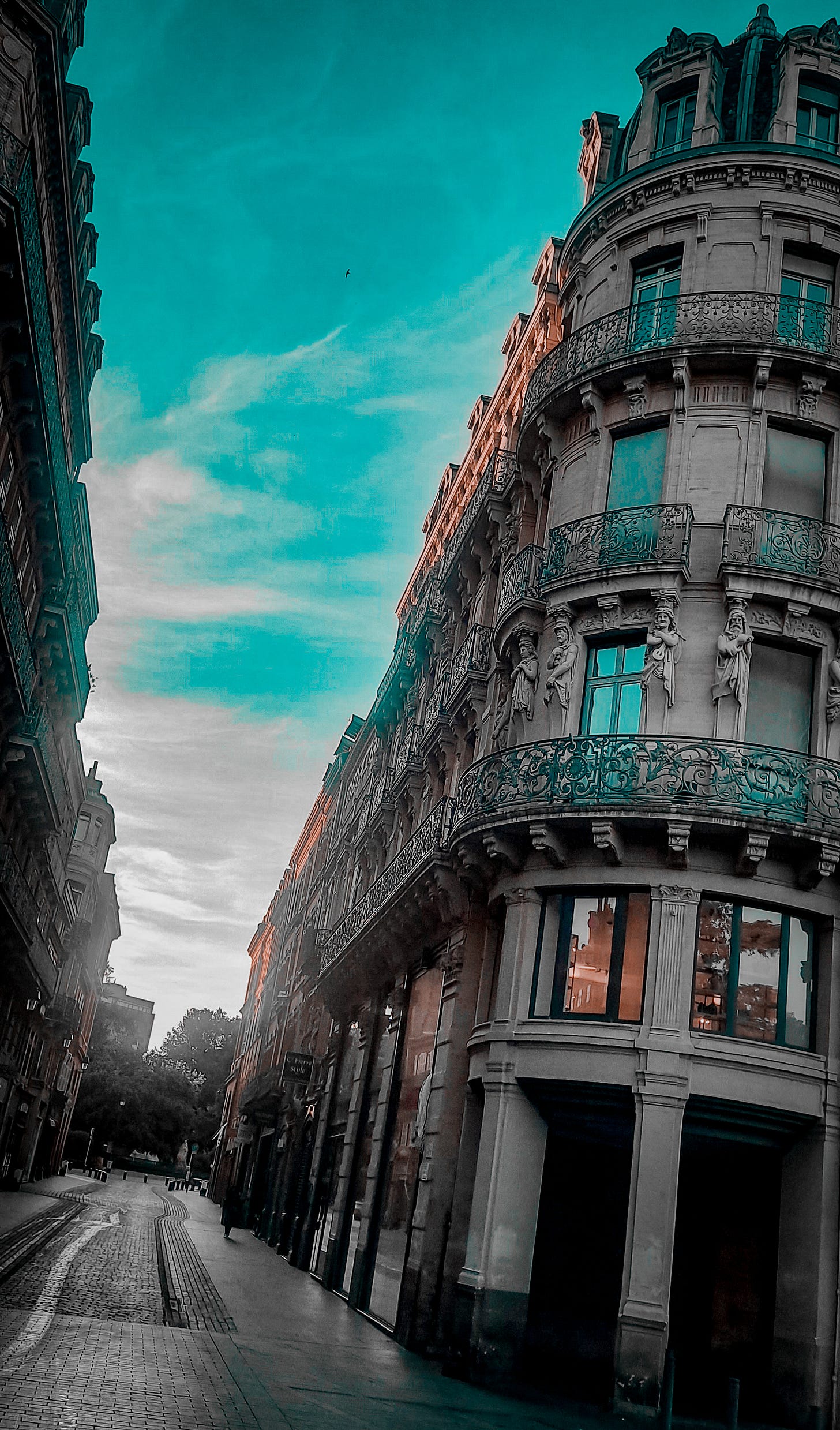i left my book in a hotel in Toulouse
On preserving the status of the physical book as an aesthetic, social, and spiritual good.
I’m in the back of an Uber to the airport when dread sweeps over me. That feeling is accompanied by uncharacteristically vivid recall: me slipping into sleep, exhausted from three days of vacationing, the book in my hand sliding onto the floor.
The book is Neil Gaiman’s View from the Cheap Seats—over 500 pages long, 280-something of which I’d been making my way through while traveling by plane and train to and around southern France. I’d been thoroughly enjoying every essay, speech, and feverish opinion or note of praise. I’d underlined and bracketed things that stood out: wisdom on mythology and layering and what makes stories work. I’d taken it to work and to casual outings, squeezing bits of reading into the in-between parts of life.
I remember buying it at The Little Apple Bookshop in York on a chilly, late November evening. (I had remarked to the clerk that they were selling a nice edition of another Gaiman book for far cheaper than I would’ve expected.)
And now I’ve lost it. My copy of The View from the Cheap Seats. Left it behind, abandoned on the floor, shunted beneath the fringe of the bedspread for housekeeping to find and do God-knows-what with. I’d had it on the nightstand for sure but had picked it up in the middle of a phone conversation to relay something I’d read earlier that day.
“You’re always leaving some shit,” says my friend, who’s with me in the back of the Uber.
Always is a stretch. Usually, I’m agonizingly meticulous. But I had left his expensive-to-me camera in a friend’s car the day before. So I guess he has a point.
I have half a mind to tell the Uber driver to turn around, but my chronic need to not inconvenience others overpowers my desperation to retrieve what is increasingly feeling like car keys or an ID that I’ve misplaced. The closer we get to the Toulouse-Blagnac Airport, the more I feel I’ve lost something far more valuable than the £10 or £11 I spent to gain it. Yes, it’s just a book. There are probably several thousands in print. But I can’t get another one—not another one with my highlights, underlines, and hand-drawn emojis in the margins.
I know lots of people say they “don’t read” or “haven’t read a book since high school.” They shrug and accept this, and I feel sad. I don’t want to make them feel bad about whatever it is they do instead, so I usually end up saying, “Maybe you just haven’t found the right books yet.” Or I interrogate them about their other interests until I think of a book they might be interested in.
After such interactions, I’m quick to retreat to my little bubble of book-lovers—a small circle of friends and acquaintances who read deliberately and privately. There’s comfort in knowing other people participating in what seems to be an increasingly undervalued practice.
The closeness I feel to my books makes it hard for me to understand someone saying “I just don’t read.” Losing one is like cutting off an arm. Once, I accidentally gave away my favorite nonfiction book—one I had highlighted and underlined and dogeared. I had bought another copy to give away, but in the grogginess of an early morning, I grabbed the wrong one off my desk. A few hours later, when I realized my mistake, I panicked.
This might all sound extremely silly. But studies show that people become attached to their books in scientifically verifiable ways. María Angélica Thumala Olave, a lecturer in global sociology at the University of Edinburgh, explored such attachments in a series of studies between 2018 and 2020. She examined interviews, group discussions, and data collected by the UK’s Mass Observation Project and proposed the questions:
Why do [book lovers] wish to be surrounded by physical copies of books and have trouble discarding them when there are plenty of old and new books available at relatively affordable prices? What are the properties of the book as an object and of the reading experience that produce attachment?
My copy of View from the Cheap Seats wasn’t brand new. Its pages were tanned and soft. The supple paperback bent easily as I gripped it in moments of mild anxiety, crisp fore-edge whispering against my palm. When marking it, I had to be careful lest the tip of the pen pierce the page. Yet, it was sturdy too. Sturdy enough to curl around the edge of my laptop as I squeezed them both into my laptop bag before a day trip to Starbucks.
But why all this consternation over a lost bundle of paper and ink? Because the form of a book has iconic power that extends beyond its simple possession for recreation and education. Adherents to Judaism, Christianity, and Islam are “people of the book,” an Islamic term applied to the billions who accept the voice of divinity in the form of ink on paper (or etching on stone).
Thousands of years after God chiseled his words into Moses’ tablets, the (now ancient) collegiate practice of publishing names and contact information in a printed “face book” culminated in Mark Zuckerburg appropriating the term for his social media site in 2004. Two years later, the taxonomy of the book hovered over the highest level of personal technological advancement at the time—the MacBook, whose parents and grandparents were known as the PowerBook and the iBook, respectively. Google has also tapped into the iconic auspice of the book, naming its laptops “chromebooks.”
Glaring against the rise of technology and the supposed decline in reading is what Dr. Thumala Olave calls “the prestige and even veneration that books elicit.” Books contain knowledge—not just facts, but social, religious, and ethical insights. They hold a promise that we might see, feel, and be entertained. And the makers of the aforementioned laptops attempt to cast their machines in the shadow of these attributes.
Barnes & Noble tried a little more subtly to rope in the cozyness and comfort attached to books by calling its tablet the Nook. That attempt is warranted because, as Thumala Olave’s research shows, “reading intensively is a support for life rather than an escape from it” and readers associate books with pleasure and comfort.
Despite tech companies’ attempts to co-opt the book’s power for their own devices, there are ways in which the book will always be superior. Books are iconic in the same way that saints are. They spawn controversy and bear silent witness. They can be imprisoned, deemed heretical and bad for society. They can be banned and burned.
No digital comparator can rival that.
Perhaps the ability to lose something gives that thing part of its value. If I lose my e-reader, I haven’t lost my e-books. I can still read them on my phone. If I lose my phone, I still have all the same e-books on my laptop. And if my laptop explodes, I still have them on my PC. And, if it comes to the worst, I can get a new device and download my e-books from the cloud.
The cloud provides a layer of protection. But it also takes away the risk that makes anything—like love, like friendship, like having children—worth the ride.
Romance. Relationships. Parenting. These things immerse us. And books immerse as well. That’s what makes them—the physical thing you can have and hold in sickness and health—so powerful. “Books become icons through immersion into them as aesthetic objects,” Thumala Olave says.
Aesthetic immersion is a dual process of subjectification and objectification. Subjectification happens when people draw the book into the self, making its content and surface their own… Objectification occurs when readers lose themselves in the object as they read it and when they submit to its formal and physical properties…
[Reading digitally] prevents the behaviours that lead to subjectification: making the book your own by moulding it to your body, keeping it, moving it around and then gifting it or bequeathing it after death… E-books are less possessions than temporary experiences.
In a world of fifteen-second TikToks, Instagram auto-scrolling, and lightning Twitter debates, it’s hard to subjectify anything—to identify with or interpret something thoroughly via one’s experience—in a real, personal way anymore. The book’s ability to hold attention and surpass the limits of temporary experience is remarkable.
In the interviews and group discussions Thumala Olave examined, readers rhapsodized about the physical presence of books in their lives in ways that might seem odd to non-bookish types.
A retired social worker sympathized with a kleptomaniac who was jailed because he kept stealing books. “I just love being around books,” he said. For him, libraries foster “a feeling of so much wisdom around you and so much joy in books as well.”
A journalist claimed his “life wouldn’t be worth living without books”: “They rank third in the love I feel for my wife and daughter, and I am not ashamed to say it.”
An administrator in her mid-thirties proclaimed a love for used books “because it’s a little connection with another person.”
Of the readers interviewed in the UK’s Mass Observation Project, only one-third owned an e-reader and only seven percent had quit reading print books as a result. The digital screen fails to immerse like the physical form which offers smell, tactile interference, and something like a psychic connection to another person, whether the author or another reader. One of Olave’s conclusions:
Aesthetic immersion is the reason why, although the meaning of the physical copy is not exhausted by its surface, the surface is necessary for attachment to develop and to be expressed and maintained over time. [Emphasis mine.]
Speaking of attachment, I’ll admit I have used books as something akin to emotional support objects. I’ll grab one off the shelf before going out if I think I’ll end up waiting someplace: restaurant, doctor’s office, train station. I know I’ll most likely browse my phone or listen to music anyway. But I feel better if there’s a book in my hand.
And the case can be made that I look better too.
Lately, high fashion’s highest members have claimed the book as a coveted item. In her article about the accessorization of the book, Jennifer Howard writes that the Hadid sisters stepping out with Stephen King’s The Outsider or Albert Camus’ The Stranger is proof that, “in the iPhone age, the codex retains a cachet even a fashion superstar might covet.”
The TikToker known as @bigbooklady summed it up best when she equated the book to just “another accessory,” saying, “Your platform Doc Martens and your Ottessa Moshfegh book are your whole look.”
Sure, a BookTok star admitting her desire to be photographed with her “hot book” because it “looks so good with [her] outfit” strikes as supremely vacuous. But I’m not too far behind German writer Calla Henkel who confesses to being “weirdly turned on” by books in Instagram posts, artfully displayed on beds and framed in twinkle lights. “I don’t think it flattens what’s inside the books. If anything, it releases it from the slumber of academia.”
Whatever else such Instagram posts, TikTok videos, and potentially vain accessorization are doing, they’re maintaining the status of the book—the physical thing—as an aesthetic, social, and spiritual good.
Our culture needs that.
I need that.
That’s why, when I got home, I called that hotel in Toulouse and muddled my way through meager French until I made the receptionist understand I had left something very valuable in my room. He said he would have the housekeepers check for it and call me back.
He never did.
Eventually, I bought another used copy of View from the Cheap Seats, this time from a bookseller on Amazon. I picked up roughly where I left off, continuing to highlight, underline, and doodle accordingly. But I treat this copy like a stepchild. It won’t ever be as good as the original. I had unearthed treasures in that first book and placed the keys in the margins. Those treasures are gone now. Something of myself was lost when I left that book behind. God forbid it happens again.









people who have books in public, styled with their outfits or not, are significantly hotter than everyone else around them. however, i've never thought about how romanticizing books via a booktok aesthetic actually helps maintain the value of the Book. INTERESTING.
I remember losing a book borrowed from a friend. I was mortified and so apologetic as I handed her the replacement I bought. I don’t think she was upset but it still sits with me.